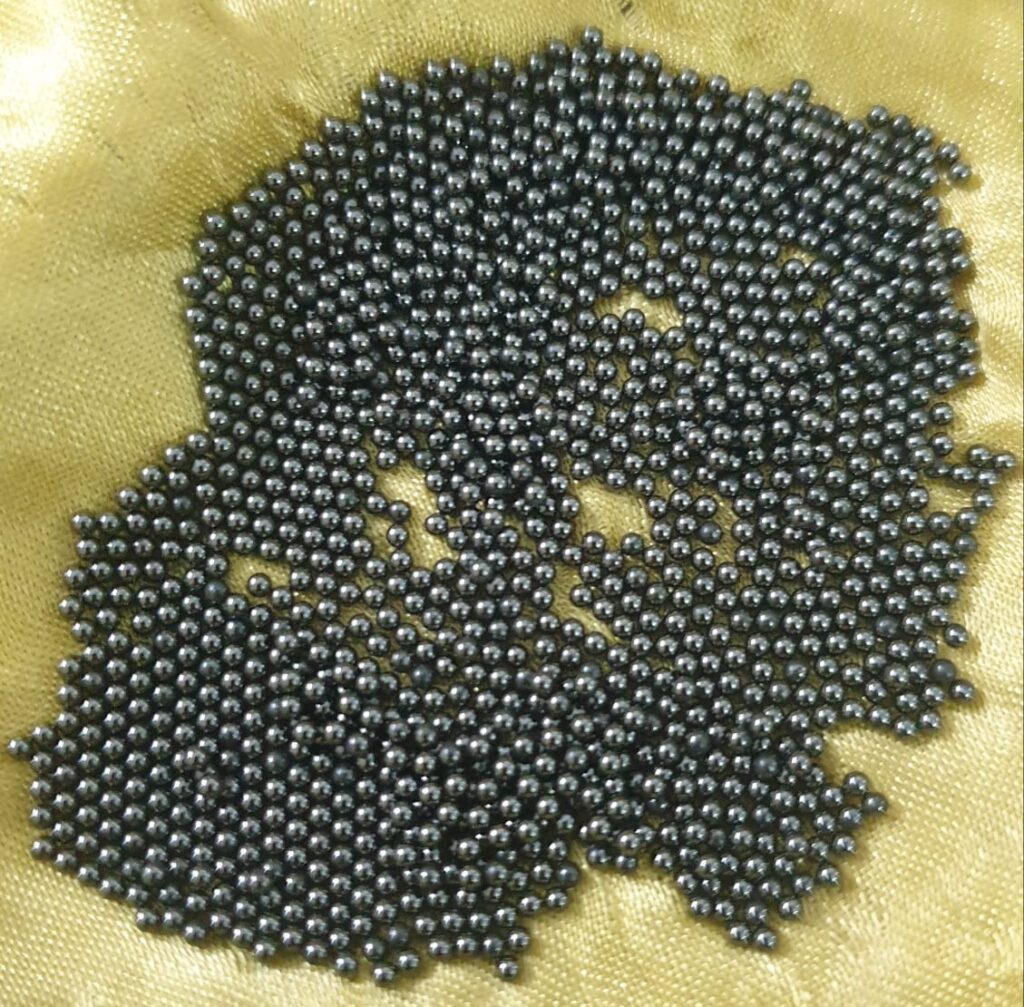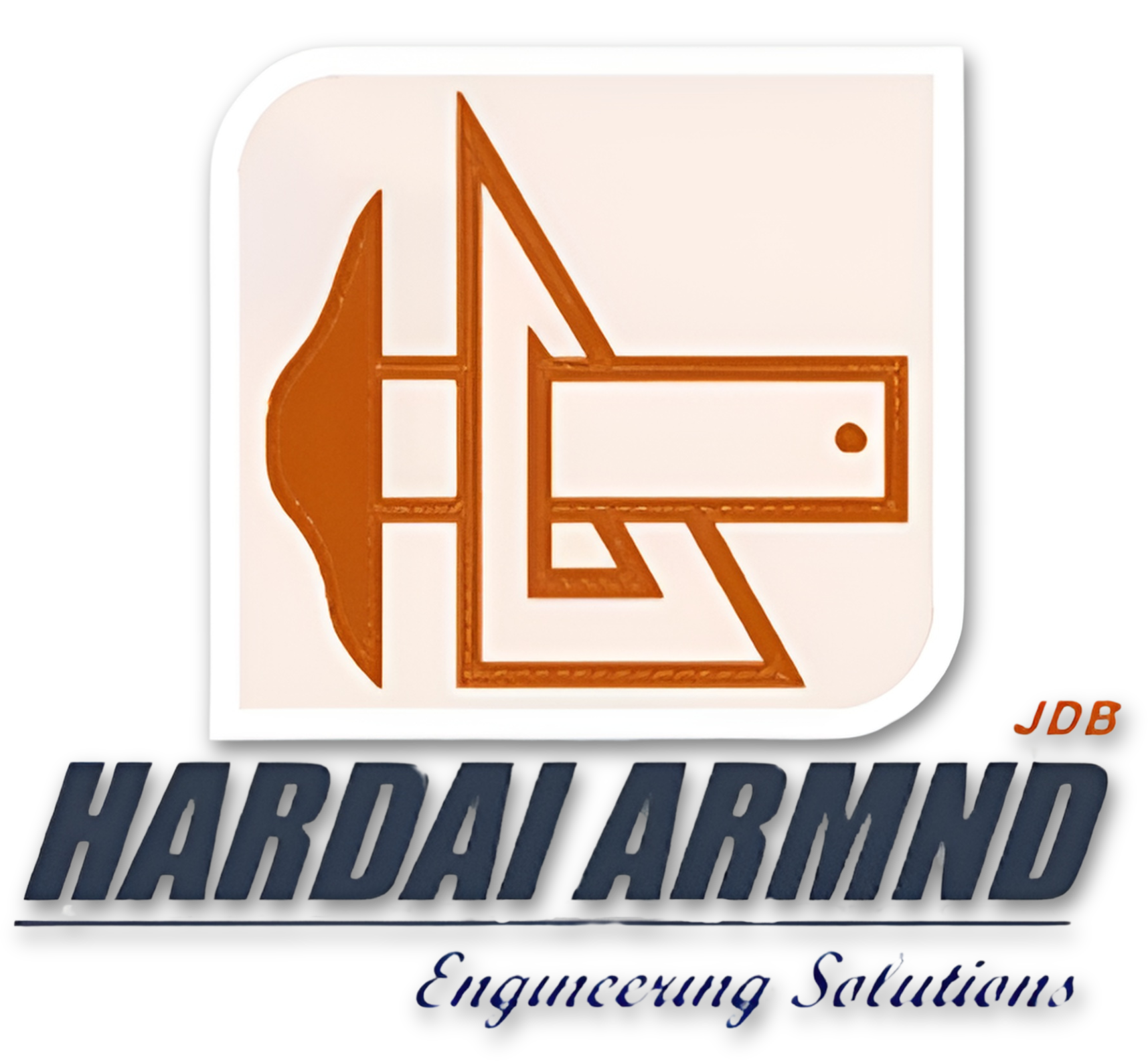SolidLube MoS2 Lubrication coating on bearing balls
- Home
- Cost-effective & superior Nano SolidLube MoS2 Lubrication coating on bearing balls
In the fast-paced world of industrial engineering, where precision and efficiency reign supreme, every component plays a crucial role. Among these, bearings stand as silent heroes, facilitating smooth motion and reducing friction in countless machines and mechanisms. However, ensuring optimal performance and longevity of bearings has long been a challenge – until now.
Hardai ARMND Engineering Solutions is proud to unveil MolyKul Coat, a groundbreaking Nano SolidLUBE MoS2 Lubrication coating designed specifically for bearing balls. This innovative solution promises to transform the way industries approach lubrication, offering unmatched durability, efficiency, and performance.

MoS2 Lubrication coating on bearing balls
Traditional lubricants rely on fluid properties to reduce friction between moving components. While effective initially, these lubricants can degrade over time, leading to increased wear and potential breakdowns. MolyKul Coat takes a different approach by leveraging the power of solid lubrication.
At the heart of MolyKul Coat lies MoS2 nanoparticles, renowned for their exceptional lubricating properties. When applied to bearing balls, these nanoparticles form a robust solid lubrication layer, effectively reducing friction and wear even under the most demanding conditions. This solid lubrication ensures continuous smooth operation, extended bearing life, and improved overall efficiency.
Challenges in bearing oil lubrication
Oil lubrication plays a vital role in ensuring the smooth operation and longevity of bearings in various industrial applications. However, despite its importance, oil lubrication also presents several challenges that engineers and maintenance professionals need to address to maintain optimal performance. Here are some common challenges in oil lubrication for bearings:
- Contamination: One of the primary challenges in oil lubrication is the risk of contamination. Particles, dirt, water, and other contaminants can enter the lubrication system, leading to accelerated wear, increased friction, and potential bearing failure. Proper filtration and sealing mechanisms are essential to mitigate contamination issues.
- Oil Degradation: Over time, oil can degrade due to factors such as oxidation, thermal breakdown, and additive depletion. Degraded oil loses its lubricating properties, resulting in increased friction and wear on bearings. Regular oil analysis and timely replacement of degraded oil are crucial to maintain effective lubrication.
- Temperature Extremes: Bearings operating in environments with extreme temperatures face unique challenges. High temperatures can cause oil to thin out, reducing its viscosity and lubricating ability. Conversely, low temperatures can cause oil to thicken, impeding its flow and lubrication effectiveness. Selecting the appropriate oil viscosity and employing temperature control measures are essential to address temperature-related challenges.
- Insufficient Lubrication: Inadequate lubrication can lead to metal-to-metal contact between bearing components, resulting in excessive friction, wear, and premature failure. Factors such as improper oil quantity, inadequate lubrication intervals, and poor lubrication distribution can contribute to insufficient lubrication. Implementing a comprehensive lubrication maintenance program, including regular inspections and lubrication scheduling, is essential to prevent this issue.
- Oil Foaming: Foaming of lubricating oil can occur due to factors such as high speeds, agitation, and air entrainment. Oil foam reduces lubrication effectiveness and can lead to cavitation, which damages bearing surfaces. Proper oil selection, adequate ventilation, and the use of anti-foaming additives can help mitigate oil foaming issues.
- Chemical Compatibility: Compatibility between the lubricating oil and bearing materials is crucial to prevent corrosion, degradation, and other adverse effects. Certain additives or contaminants in the oil may react with bearing materials, leading to premature failure. Conducting compatibility tests and selecting oils specifically formulated for the application can help address chemical compatibility challenges.
- Over-Lubrication: While insufficient lubrication is a concern, over-lubrication can also pose problems. Excessive oil levels can lead to churning, overheating, and increased power consumption. Proper lubrication quantity and application methods, as well as adherence to manufacturer recommendations, are essential to avoid over-lubrication.
MolyKul Coat- MoS2 Lubrication Coating solves it
MoS2 (Molybdenum Disulfide) lubrication coatings offer a compelling solution to many of the challenges associated with traditional oil lubrication methods in bearings. Here’s how MoS2 coating addresses each of the previously mentioned issues:
- Contamination: Unlike oil lubrication, MoS2 coatings form a solid layer on bearing surfaces, providing a physical barrier against contaminants. This layer effectively prevents particles, dirt, and water from reaching the bearing surfaces, reducing the risk of contamination-related wear and failure.
- Oil Degradation: MoS2 coatings are highly resistant to oxidation and thermal breakdown, offering long-lasting lubrication without the need for frequent oil changes. By eliminating the need for continuous oil replenishment, MoS2 coatings help maintain stable lubrication performance over extended periods.
- Temperature Extremes: MoS2 coatings exhibit excellent thermal stability and can withstand extreme temperatures without significant degradation. Whether operating in high-temperature environments or sub-zero conditions, MoS2-coated bearings maintain their lubricating properties, ensuring consistent performance across a wide range of temperatures.
- Insufficient Lubrication: MoS2 coatings provide a continuous solid lubrication layer on bearing surfaces, ensuring uniform lubrication distribution and preventing metal-to-metal contact. This effectively eliminates the risk of insufficient lubrication and associated wear, even under heavy loads and high speeds.
- Oil Foaming: Unlike oil-based lubricants, MoS2 coatings do not foam or aerate, providing stable lubrication performance without the risk of cavitation or air entrainment. This ensures reliable operation even in applications prone to agitation or high-speed operation.
- Chemical Compatibility: MoS2 coatings are chemically inert and compatible with a wide range of bearing materials, including steel, bronze, and plastics. This compatibility minimizes the risk of chemical reactions and material degradation, ensuring long-term reliability and performance of coated bearings.
- Over-Lubrication: With MoS2 coatings, there’s no risk of over-lubrication as there’s no excess lubricant to cause churning or overheating. The solid lubrication layer provided by MoS2 coatings remains consistent, regardless of operating conditions, ensuring optimal lubrication without the need for precise quantity control.
Specifications of MolyKul coat – MoS2 lubrication coating on bearing ball by HAES
MoS2 Lubrication coating on bearing balls – Cost effective
MoS2 lubrication coatings offer unparalleled advantages in market efficiency and cost-effectiveness for bearings. By providing a durable solid lubrication layer on bearing balls, MoS2 coatings minimize friction, wear, and maintenance requirements, resulting in increased operational efficiency and reduced downtime. The longevity of MoS2 coatings eliminates the need for frequent lubrication and replacement, saving both time and resources. Additionally, the enhanced performance and extended lifespan of bearings coated with MoS2 translate to lower overall lifecycle costs, making it a highly cost-effective solution for industries seeking to optimize their operations while maximizing profitability.
| MoS2 Lubrication Coating Specifications | Parameters | |||
| Film Material | Molybdenum Di sulfide (MoS2) as per AMS2526 | |||
| Coating on of ball bearing diameter | 1mm to 15mm | |||
| Colour | Black | |||
| Compunding material as per application | Copper, Tin, Titanium, Chromium, Silicon, SiO2 & other alloys as per application | |||
| Film thickness | 1μm to 8μm | |||
| Particle Size | 10 nanometer to 15 nanometer | |||
| Coefficient of friction (COF) | Tested as per ASTM G99 (Pin in disc test) with different compounding | |||
| Bearing speed tested till date (Bearing 61906) | 35000 RPM for 4 Hour (No Oil & No grease) | |||
Market players benifiting from Hardai ARMND MoS2 Lubrication coating services
NBC Bearings (Exploring Nano SolidLube MoS2 (Molybdenum Disulfide) and VEM Technologies are two prominent players in the industrial machinery sector, and both stand to benefit significantly from the adoption of Hardai ARMND MoS2 Lubrication coating services on bearing balls.
For NBC Bearings, which specializes in manufacturing high-quality bearings for various industries including automotive, aerospace, and heavy machinery, integrating MoS2 lubrication coatings can offer several advantages. By applying Hardai ARMND MoS2 coatings on their bearing balls, NBC Bearings can enhance the performance and longevity of their products. The solid lubrication provided by MoS2 coatings ensures smoother operation, reduced friction, and minimized wear, ultimately leading to increased reliability and extended maintenance intervals for their bearings. This translates to improved customer satisfaction and loyalty, as well as a competitive edge in the market.
Similarly, VEM Technologies, a leading provider of advanced industrial machinery and equipment, can leverage the benefits of MoS2 lubrication coatings to enhance the performance and efficiency of their products. Whether it’s high-speed motors, precision drives, or heavy-duty machinery, VEM Technologies can integrate MoS2-coated bearings to improve reliability, reduce maintenance costs, and extend service life. The solid lubrication properties of MoS2 coatings provide a robust solution for demanding operating conditions, ensuring optimal performance even in harsh environments.
The market shift towards MoS2 solid lubrication coatings is driven by several factors. Firstly, MoS2 coatings offer superior lubrication performance compared to traditional oil lubrication methods. The solid lubrication layer formed by MoS2 coatings provides continuous protection against friction and wear, resulting in smoother operation and extended component life. Additionally, MoS2 coatings eliminate the need for frequent re-lubrication, reducing maintenance requirements and downtime. Moreover, MoS2 coatings are environmentally friendly, as they eliminate the risk of oil spills and contamination. Overall, the market is recognizing the numerous benefits of MoS2 solid lubrication coatings, leading to increased adoption across various industries seeking to enhance efficiency, reliability, and sustainability in their operations.
FAQ’s
- How long does MolyKul Coat last? MolyKul Coat is engineered for longevity, offering prolonged lubrication compared to traditional lubricants. The exact duration varies depending on operating conditions, but users can expect significant performance benefits over time.
- Is MolyKul Coat compatible with all types of bearings? Yes, MolyKul Coat is compatible with various bearing types, including ball bearings, roller bearings, and thrust bearings, making it a versatile solution for diverse industrial applications.
- Can MolyKul Coat withstand high temperatures? Absolutely. MolyKul Coat is designed to withstand high temperatures, making it suitable for use in industries with demanding operating environments, such as automotive, aerospace, and manufacturing.
- Does MolyKul Coat require specialized application equipment? While precise application is essential for optimal performance, MolyKul Coat can be applied using standard coating equipment, ensuring seamless integration into existing manufacturing processes.
Experience the Future of Bearing Lubrication with MolyKul Coat
Don’t let friction hinder your operations. Upgrade to MolyKul Coat today and unlock unparalleled performance, reliability, and efficiency for your machinery. Contact Hardai ARMND Engineering Solutions to learn more about how MolyKul Coat can elevate your bearings to new heights of performance and longevity.
Join us in shaping the future of industrial lubrication with MolyKul Coat – where innovation meets excellence. #Engineering #Innovation #Lubrication #MolyKulCoat #HardaiARMNDEngineeringSolutions



Leave A Comment